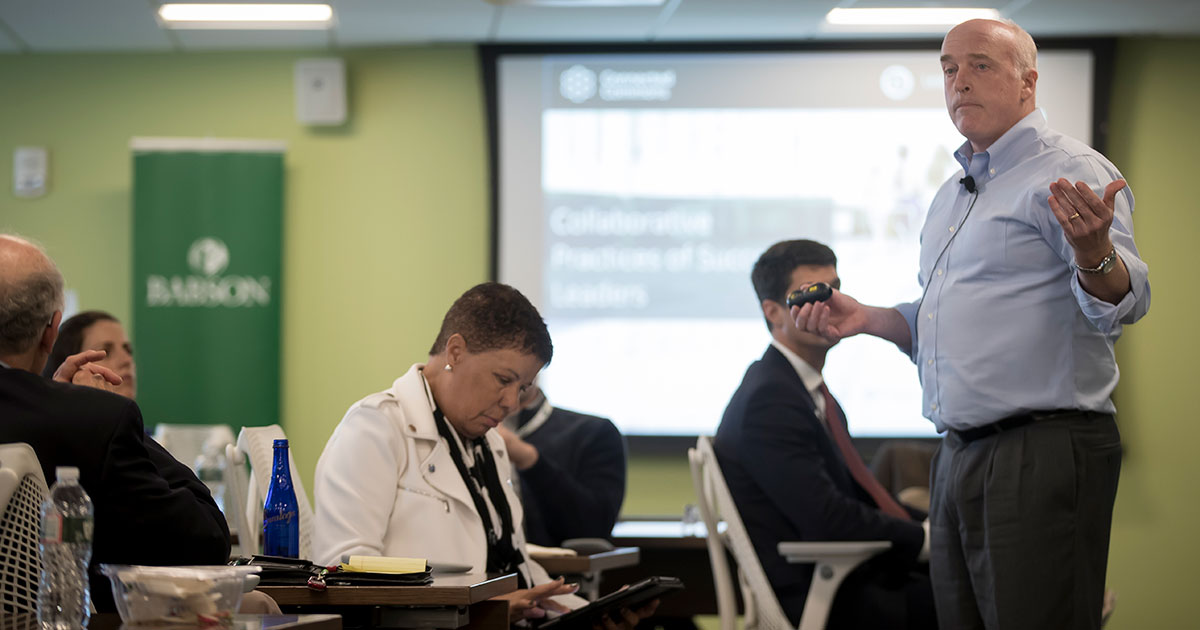In a Networked Economy, Connectivity Isn’t Always the Answer

In most organizations, employees spend about 80% of their time communicating via email, phone, through instant messaging services such as Slack, and in meetings, and no one is actually tracking the impact that this has on workflow, says Babson Associate Professor Rob Cross.
“We have no understanding of the demands that are being placed on people and how work’s getting done. Being able to look at those patterns of connectivity, and see how to improve, is a really big deal,” said Cross at Babson’s Centennial Celebration, where he shared his expertise about ‘The Agile Enterprise’ and a networked economy as part of a workshop series with Professors Tom Davenport and Andrew Corbett at Babson Boston.
Over his career, Cross has helped develop innovation, leadership, and talent management strategies with more than 300 companies, government agencies, and nonprofit organizations.
A Need for Efficiency
Between 3% and 5% of workers in most organizations account for 20% to 35% of the value-added collaborations, said Cross.
“If we think about collaboration analytically, we get really different results in terms of how we’re trying to drive innovation,” said Cross.
Cross says most employees would benefit from fewer time spent in communication settings, which he says can lead to greater innovation.
Employees can take initiative in their companies by exerting influence and requesting fewer time for meetings, according to Cross, permitting for more time for employees to work on tasks they enjoy.
“The knee-jerk reaction is: More connectivity is better. Nobody is actively looking to see how we’re investing in this time,” Cross said. “How do you create a healthy, entrepreneurial mindset inside organizations? People that are doing it well, they’re buying time back and investing it differently.”
Collaboration is most useful when there’s a clear goal and a productive outcome.
Take Mars, Incorporated for example. Cross shared a personal story of his work with the organization, where there was, at the time, a frustration with a lack of innovation. This led to a decision to hold a company retreat in Las Vegas, where the idea for custom candy M&Ms was born.
Finding the Meaning of Success
Cross also said he finds himself working with students to discover the true meaning of professional success.
“We spend a lot of time thinking about individuals,” he said. “What does it take to be successful today? Given the demands coming at us, I think (it) is higher than ever before.”
“We say, ‘Who are the people staying in the high-performance category?’ They’re upwardly mobile, and they’re scoring high on measures of thriving, resilience, satisfaction.”
Success translates to production, as those employees are about 20% more efficient collaboratively than their peers, Cross added.
He also referenced the importance of purpose in the office, and cited Workday as one of the top places to work due to the company’s ability to diffuse ownership early on for employees.
“You very rarely convert the real strong energizers, and you very rarely convert the real strong de-energizers,” he said. “But, if you can get inside the bell curve, and use things systemically to raise the game of a couple, then it tends to work well.”
Posted in Insights







